No, fortunately there is not.
The same-origin policy is an security concept implemented by browsers to prevent Javascript code from making requests against a different origin/domain than the one from which it was served. So enabling developers to bypass this from Javascript would be a bad thing.
Cross-Origin Resource Sharing (CORS) is a mechanism that uses additional HTTP headers to tell a browser to let a web application running at one origin (domain) have permission to access selected resources from a server at a different origin. A web application makes a cross-origin HTTP request when it requests a resource that has a different origin (domain, protocol, and port) than its own origin.
Source: Cross-Origin Resource Sharing (CORS)
If you're in control of the API:
Add an Access-Control-Allow-Origin header containing the domain your requests are originating from.
If you're not in control of the API:
Ask the developer of the API to have your domain added to an Access-Control-Allow-Origin header.
EDIT:
Adding the correct header will not 'make the request an OPTIONS request while the server only accepts POST'.
The OPTIONS request is a preflight request to check to see if the CORS call can actually be made. If the preflight request has the correct header, the POST request will follow as you can see in the image below:

You can find all of the basic CORS information in the article Understanding CORS
